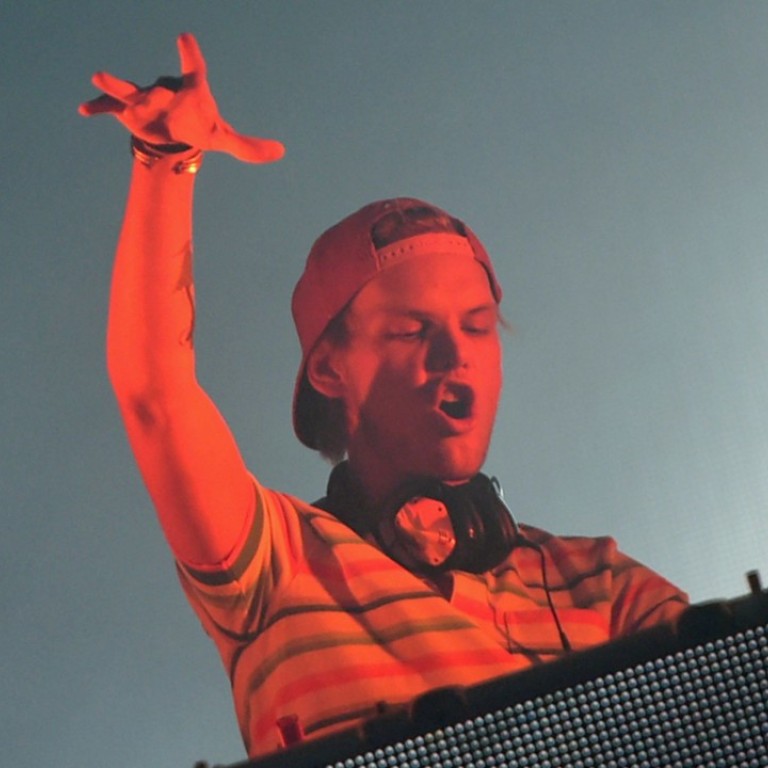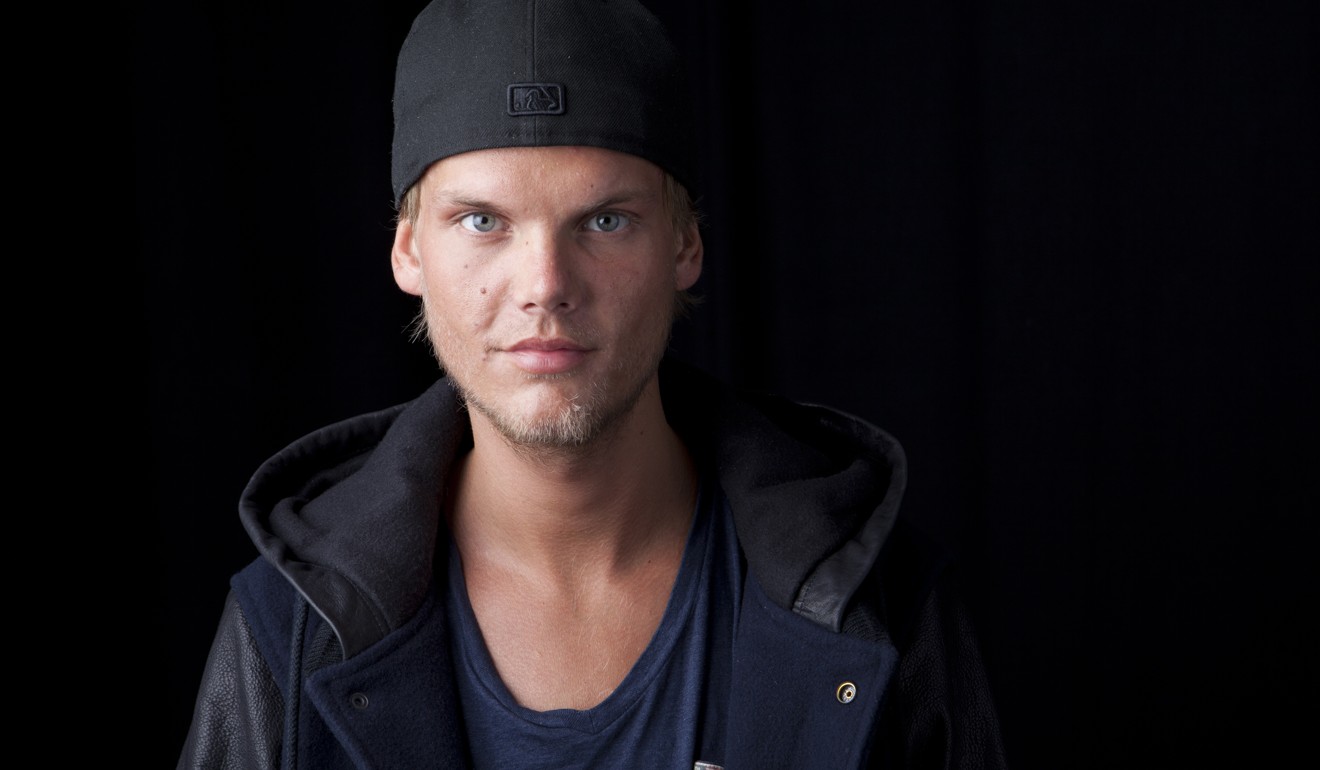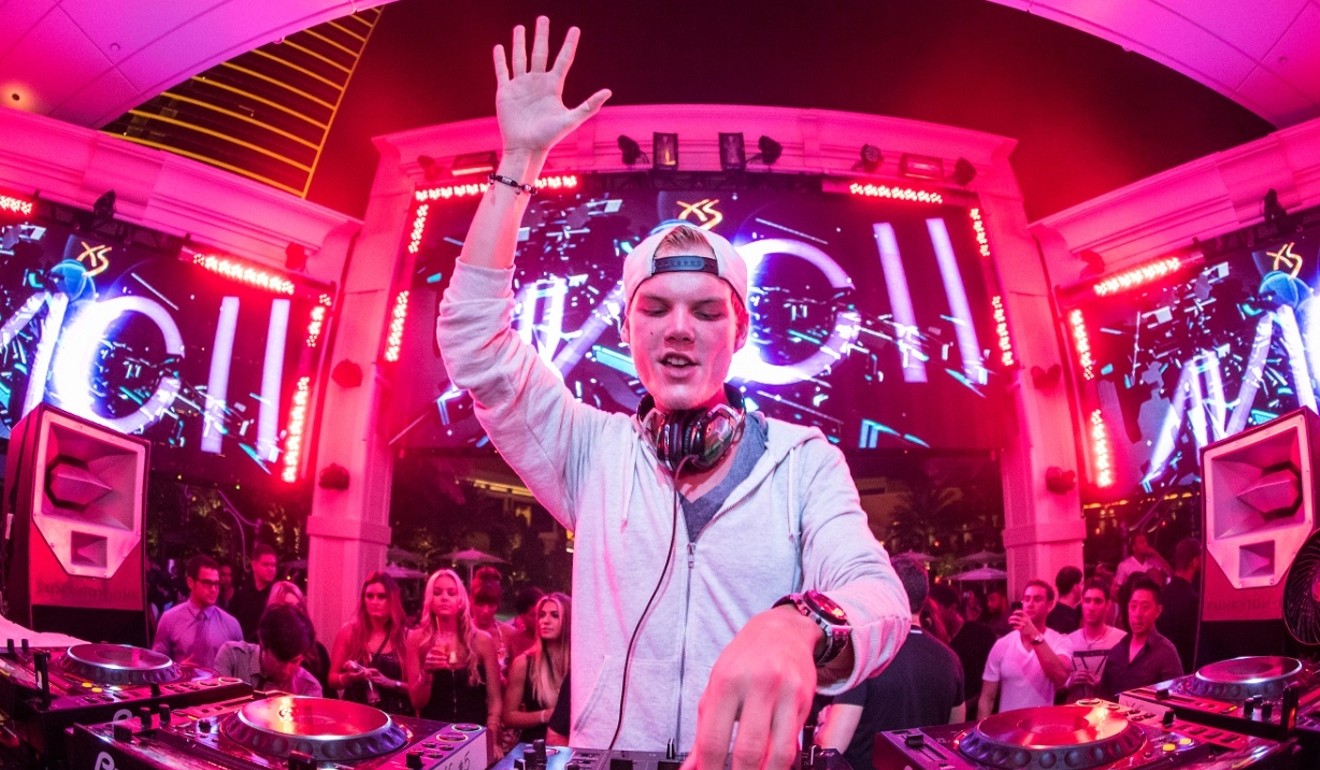
Electronic dance music now has its Kurt Cobain – Avicii death a coming-of-age in EDM boom
Death of 28-year-old Swedish DJ Avicii – the first electronic superstar to die near his prime – could be a turning point in an industry that was last year worth US$7.4 billion
Rock ‘n’ roll had Buddy Holly, the psychedelic era had Jimi Hendrix and Janis Joplin, and grunge had Kurt Cobain. Now electronic dance music has Avicii.
The Black Madonna, DJing at Sónar, on dance music’s global appeal
Avicii, the stage name of Tim Bergling, was not a first-out-the-door pioneer of electronic dance music, or EDM. But he both showed the mainstream possibilities of EDM and, by the end of his short life, had already become a sage elder who cautioned about the artistic and commercial overreach of the music.
The EDM scene has exploded since the turn of the century and last year was worth US$7.4 billion, according to a study by the industry’s International Music Summit in Ibiza. Avicii came to define the new age of radio-friendly EDM in 2011 with Levels, which entered the top 10 across Europe with its sample of soul great Etta James in between synthesiser riffs soaring with stadium-packing power.
Non-clubbers also heard EDM’s energy when Avicii teamed up with rockers Coldplay on Sky Full of Stars, with Chris Martin’s voice giving way to fast-building, synthesised ecstasy.
But perhaps Avicii’s most influential moment came in 2013 when he headlined the Ultra Music Festival in Miami. A year after he invited Madonna as a surprise stage guest, he befuddled a crowd of ravers by bringing out a bluegrass band with a banjo for his soon-to-be-hit Wake Me Up.
In an interview soon afterward, Avicii warned that EDM was moving too quickly into a sound too hard and unmelodious, saying that audiences would soon tire of it.
Avicii’s death at age 28 in Oman stuns Hong Kong fans
“Since it got so big in America the past couple of years, dance music is taking over everywhere,” Avicii told the London Evening Standard. “It’s important that it keeps changing so it doesn’t become a fad.”
Wake Me Up may now be remembered for more than the banjo twist. The track, featuring singer Aloe Blacc, reflects on ageing with the line, “I wish I could stay forever this young.”

Like other musicians who died with so many years ahead of them, Avicii looks destined to be remembered with an aura of tragedy. He retired from touring in 2016 as he suffered health problems including acute pancreatitis, triggered in part by excessive drinking.
Avicii, who acknowledged his problems in the sole lyric to the song Alcoholic, died while on holiday in Oman. The cause remains unclear, although police sources in the Gulf sultanate did not suspect foul play.
EDM started getting oversaturated four, five, six years ago, when money became everything
The electronic music world has been struck by few other deaths. House music forerunner Frankie Knuckles and New York party organiser David Mancuso have both died in recent years, but both were considerably older.
Avicii’s death puts him nearly in the so-called “27 Club” – celebrated musicians who have died at age 27 including Cobain, Hendrix, Joplin, Jim Morrison, soul singer Amy Winehouse and Rolling Stone Brian Jones.
Avicii – a stage name derived from the Sanskrit for the deepest stage of hell, the inverse of Cobain’s Nirvana – had spoken of being an introvert who was never comfortable with the hard-partying lifestyle of a DJ, for whom alcohol was always available and usually free.

But could his death also amount to a turning point for EDM? Late in his life, he appeared to think the scene was on the wane.
“EDM started getting oversaturated four, five, six years ago, when money became everything. From that point, I started mentally not wanting to associate myself with EDM,” he told Rolling Stone magazine last September.
After retreating to the studio, he last year released an EP whose singles included Lonely Together featuring singer Rita Ora. His soundscape accentuated a tight pop song with none of the booming synthesisers of EDM anthems.
But there are limited signs of an imminent bubble in EDM. Calvin Harris, the top-paid DJ, earned US$48.5 million last year, according to an estimate by Forbes, and the rise of streaming subscriptions has helped bolster the industry’s overall earnings.
Sónar Hong Kong organisers on experimental line-up, exploding local electronic music scene and their love of Science Park venue
Kygo, another leading DJ, closed his set last Friday at the Coachella festival in California with a tribute to Avicii, to whom he credited his decision to pursue electronic music.
“I know he’s inspired millions of other producers out there,” he said.

.png?itok=arIb17P0)